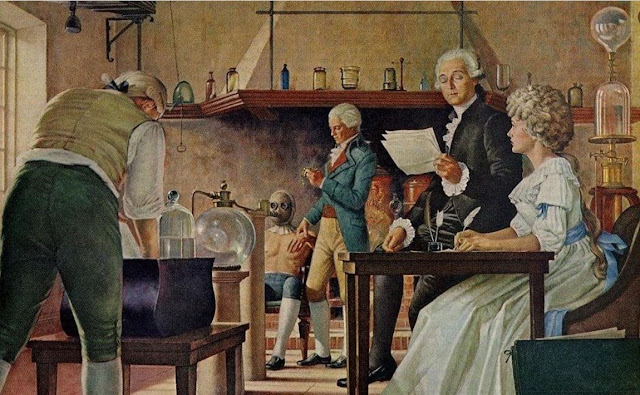Lavoisier "anti-clérical"?
Was Lavoisier a sceptical Enlightenment rationalist or (as a number of websites insist) a Christian believer?
This is a difficult question to answer: in the his writings and in his many letters which have come down to us, there is almost no mention of religion.
However, in October 1791 he penned the following tirade against clerical education:
Public education as it exists in almost the whole of Europe, has been set up not to form citizens but to produce priests, monks and theologians. The spirit of the Church has always opposed innovation, and because the first Christians spoke and prayed in Latin...it has been deemed necessary to pray in Latin to the end of time. For this reason the European education system is almost entirely directed towards teaching Latin.
If one reviews the public acts, the thesis of metaphysics and ethics defended in the Colleges, one sees that they are only an introduction to theology, that theology is the highest form of knowledge, which shapes whole education system.
The only goal of public education is to form priests. For a long time the Colleges were open only to those who studied for the priesthood. Since an ecclesiastical career led to honour and fortune, the catholic nations were naturally divided into two classes: ecclesiastics, who had all the instruction and the illiterate who formed almost all the rest of the nation. This is how, at first by chance, and then by strategy, all the means to destroy errors and prejudices was concentrated in the hands of those who had an interest in propagating them.
https://gallica.bnf.fr/ark:/12148/bpt6k29289p/f62.item







.jpg)




